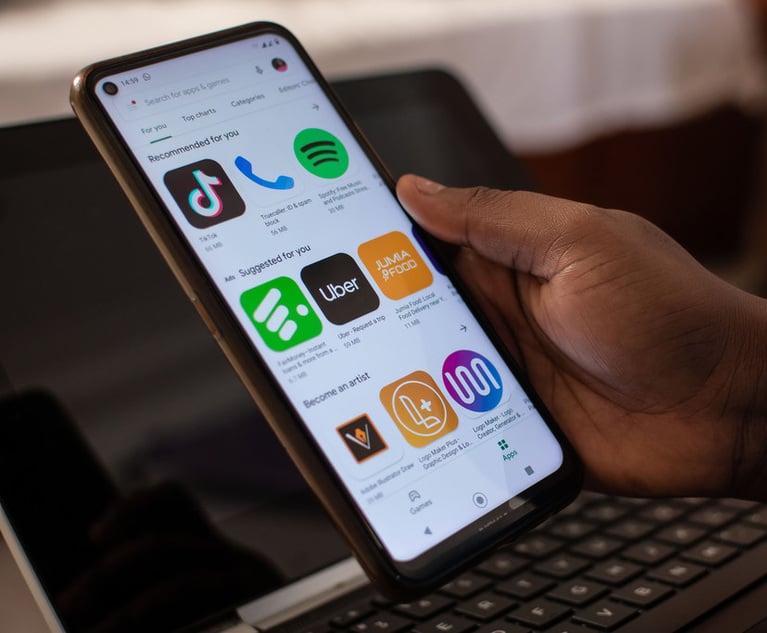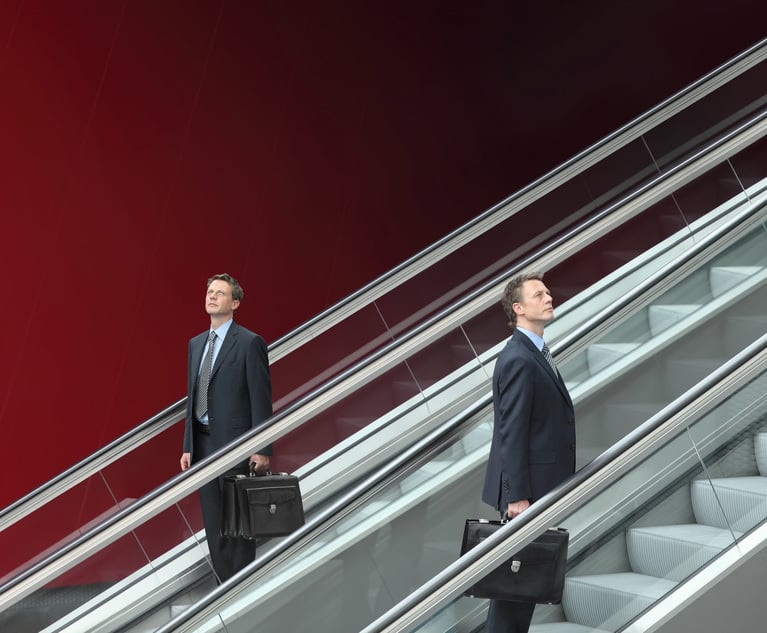DWF advises Kensington and Chelsea Council as Grenfell Tower fire inquiry gets underway
Northeast law firm Wilkin Chapman also acts for council in relation to disaster
September 14, 2017 at 08:07 AM
4 minute read
DWF is advising Kensington and Chelsea Council as the inquiry into this June's Grenfell Tower disaster, which resulted in the deaths of at least 80 people in North Kensington, gets underway today (14 September).
The law firm's role was confirmed by the council following a Freedom of Information Act request submitted by Legal Week, which also revealed that northeast law firm Wilkin Chapman has been consulted by the council, although the exact nature of the firm's role is unclear.
DWF head of regulatory Steffan Groch is leading the firm's team acting for Kensington and Chelsea Council.
In 2012, a DWF team led by Groch advised Lion Steel Equipment on its £480,000 fine for the corporate manslaughter of an employee who died following a workplace accident. The case was only the third time a company in the UK was convicted under the Corporate Manslaughter and Corporate Homicide Act, which came into force in 2008.
A spokesperson for Kensington and Chelsea Council said: "The council has an in-house legal team and for specialist matters also engages external legal advice from time to time."
The inquiry into the fire was opened today (14 September) by former Court of Appeal judge Sir Martin Moore-Bick, who is chairing the inquiry panel alongside barristers Richard Millett QC of Essex Court Chambers, Lamb Building's Bernard Richmond QC, Kate Grange QC of 39 Essex Chambers, and solicitor to the inquiry Caroline Featherstone.
Featherstone, a former senior solicitor in the Government Legal Department, is working with a team of three solicitors including Cathy Kennedy and Shafi Nasser, both of who also come from the Government Legal Department.
Andrew Kinnier of Henderson Chambers and Rose Grogan of 39 Essex Chambers are serving as junior counsel to the inquiry, while criminal defence specialist Zeenat Islam of 25 Bedford Row is working in conjunction with Bernard Richmond QC.
In his opening statement to the inquiry today, Sir Martin said: "The purpose of the inquiry is to find out what had happened and why it had happened, with a view to ensuring that a similar catastrophe could never occur again.
"The role of solicitors and counsel to the Inquiry is not to promote any particular conclusion or result, still less to favour any particular witness or class of witnesses. Rather, it is to place before me and before the public evidence that will enable me to make findings about what occurred and put forward recommendations for the future.
"They will do that by presenting the evidence in public hearings and by questioning those witnesses whom I decide should be called to give oral evidence. When required, they will also provide me with impartial advice on matters of law and procedure."
The make-up of the inquiry panel has been challenged by a group of ethnic minority lawyers, BMELawyers4Grenfell, which filed an application for permission to apply for judicial review based on concerns over the lack of ethnic diversity among the panel. However, that application has now been rejected, according to legal news website Legal Voice.
In the immediate aftermath of the fire, law firms rushed to contribute to the support effort, with Allen & Overy, Linklaters, Eversheds Sutherland and Freshfield Bruckhaus Deringer among a raft of firms donating to the Evening Standard's fundraising effort. Ashurst and Ropes & Gray also seconded a pro bono manager to North Kensington Law Centre, which helped to coordinate the legal response.
In late June, a number of US law firms announced that they would be looking into shareholder claims relating to the disaster, following the decision by the New York-based manufacturer of the building's controversial cladding to halt sales of the product.
Wilkin Chapman has been approached for comment.
This content has been archived. It is available through our partners, LexisNexis® and Bloomberg Law.
To view this content, please continue to their sites.
Not a Lexis Subscriber?
Subscribe Now
Not a Bloomberg Law Subscriber?
Subscribe Now
NOT FOR REPRINT
© 2024 ALM Global, LLC, All Rights Reserved. Request academic re-use from www.copyright.com. All other uses, submit a request to [email protected]. For more information visit Asset & Logo Licensing.
You Might Like
View All
'Almost Impossible'?: Squire Challenge to Sanctions Spotlights Difficulty of Getting Off Administration's List
4 minute read
Freshfields Takes on Syria's Brutal Legacy, But Will Victims Ever See Compensation?
5 minute read
TikTok Faces European Commission Probe Over Alleged Meddling in Romanian Election
3 minute read
How Will M&A, Tech & Trump Shape Law Firm Growth in 2025? Global Leaders Share Their Insights
6 minute readTrending Stories
- 1Call for Nominations: Elite Trial Lawyers 2025
- 2Senate Judiciary Dems Release Report on Supreme Court Ethics
- 3Senate Confirms Last 2 of Biden's California Judicial Nominees
- 4Morrison & Foerster Doles Out Year-End and Special Bonuses, Raises Base Compensation for Associates
- 5Tom Girardi to Surrender to Federal Authorities on Jan. 7
Who Got The Work
Michael G. Bongiorno, Andrew Scott Dulberg and Elizabeth E. Driscoll from Wilmer Cutler Pickering Hale and Dorr have stepped in to represent Symbotic Inc., an A.I.-enabled technology platform that focuses on increasing supply chain efficiency, and other defendants in a pending shareholder derivative lawsuit. The case, filed Oct. 2 in Massachusetts District Court by the Brown Law Firm on behalf of Stephen Austen, accuses certain officers and directors of misleading investors in regard to Symbotic's potential for margin growth by failing to disclose that the company was not equipped to timely deploy its systems or manage expenses through project delays. The case, assigned to U.S. District Judge Nathaniel M. Gorton, is 1:24-cv-12522, Austen v. Cohen et al.
Who Got The Work
Edmund Polubinski and Marie Killmond of Davis Polk & Wardwell have entered appearances for data platform software development company MongoDB and other defendants in a pending shareholder derivative lawsuit. The action, filed Oct. 7 in New York Southern District Court by the Brown Law Firm, accuses the company's directors and/or officers of falsely expressing confidence in the company’s restructuring of its sales incentive plan and downplaying the severity of decreases in its upfront commitments. The case is 1:24-cv-07594, Roy v. Ittycheria et al.
Who Got The Work
Amy O. Bruchs and Kurt F. Ellison of Michael Best & Friedrich have entered appearances for Epic Systems Corp. in a pending employment discrimination lawsuit. The suit was filed Sept. 7 in Wisconsin Western District Court by Levine Eisberner LLC and Siri & Glimstad on behalf of a project manager who claims that he was wrongfully terminated after applying for a religious exemption to the defendant's COVID-19 vaccine mandate. The case, assigned to U.S. Magistrate Judge Anita Marie Boor, is 3:24-cv-00630, Secker, Nathan v. Epic Systems Corporation.
Who Got The Work
David X. Sullivan, Thomas J. Finn and Gregory A. Hall from McCarter & English have entered appearances for Sunrun Installation Services in a pending civil rights lawsuit. The complaint was filed Sept. 4 in Connecticut District Court by attorney Robert M. Berke on behalf of former employee George Edward Steins, who was arrested and charged with employing an unregistered home improvement salesperson. The complaint alleges that had Sunrun informed the Connecticut Department of Consumer Protection that the plaintiff's employment had ended in 2017 and that he no longer held Sunrun's home improvement contractor license, he would not have been hit with charges, which were dismissed in May 2024. The case, assigned to U.S. District Judge Jeffrey A. Meyer, is 3:24-cv-01423, Steins v. Sunrun, Inc. et al.
Who Got The Work
Greenberg Traurig shareholder Joshua L. Raskin has entered an appearance for boohoo.com UK Ltd. in a pending patent infringement lawsuit. The suit, filed Sept. 3 in Texas Eastern District Court by Rozier Hardt McDonough on behalf of Alto Dynamics, asserts five patents related to an online shopping platform. The case, assigned to U.S. District Judge Rodney Gilstrap, is 2:24-cv-00719, Alto Dynamics, LLC v. boohoo.com UK Limited.
Featured Firms
Law Offices of Gary Martin Hays & Associates, P.C.
(470) 294-1674
Law Offices of Mark E. Salomone
(857) 444-6468
Smith & Hassler
(713) 739-1250








